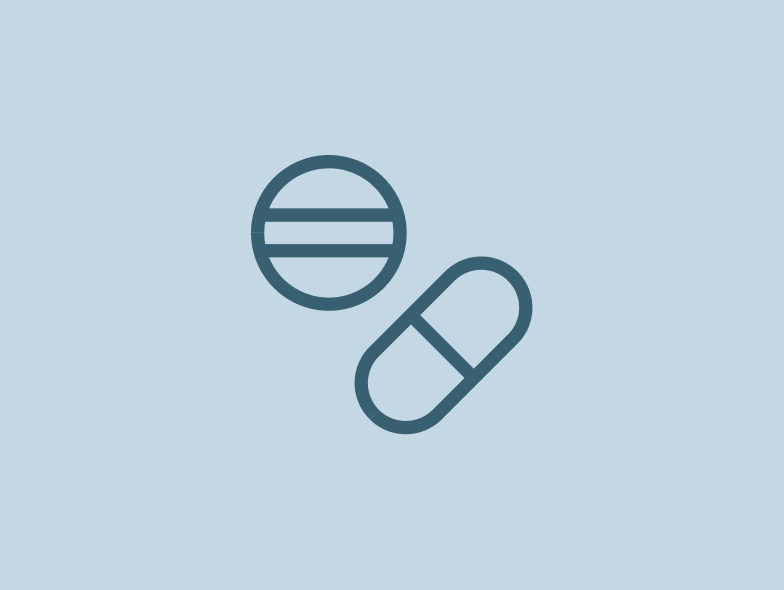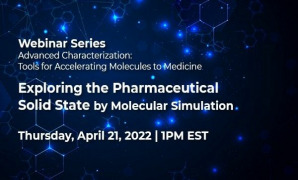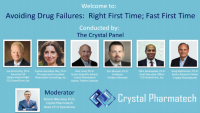Chiral Separation by Crystallization

Product Description
Crystal Pharmatech

-
US
-
2018On CPHI since
-
1Certificates
-
50 - 99Employees
Company types
Categories
Crystal Pharmatech

-
US
-
2018On CPHI since
-
1Certificates
-
50 - 99Employees
Company types
More Products from Crystal Pharmatech (2)
-
Product Solid Form Screening
We know that the needs in early development are different from the needs in late development and we tailor our screening approach based on information from the client and our experience with a wide range of compounds. At Crystal Pharmatech, we utilize a unique screening approach that co... -
Product Crystallization
Crystallization is a critical unit operation in API manufacturing for both final product and intermediates. Desired product quality attributes can be obtained economically with high efficiency through well-designed and controlled crystallization processes.
Crystal Pharmatech resources (2)
-
News Exploring the Pharmaceutical Solid State by Molecular Simulation
Abstract: We explore how state-of-the-art molecular simulation can be used to train advanced neural networks for high-fidelity, high-accuracy forcefields from Density-Functional Simulation. This allows - indeed, liberates and empowers, us - to train more accurate force-fields and apply this to basin-hopping journeys through potential-energy landscapes, allowing us to revolutionise the prediction and validation of polymorph populations.
Biography:Following a First in Chemical Engineering in 2000 and Ph.D. on crystallisation molecular simulation in 2003 at UCD Chemical Engineering, Niall English carried out further simulation and theoretical studies on hydrates at the National Energy Technology Laboratory, a U.S. DOE research facility. During 2005 to 2007, he worked for the Chemical Computing Group in Cambridge, GB. Here, Niall developed molecular simulation codes, protocols and methods for biomolecular simulation, used chiefly in structure-based drug design applications in the pharmaceutical industry. Niall commenced his position as a lecturer in the School of Chemical and Bioprocess Engineering in January 2007, being promoted to senior lecturer in January 2014 and professor in February 2017. He is currently lecturing on chemical-engineering design, thermodynamics, experimental design, process control and molecular simulation. His research interests encompass nanoscience (such as nano-bubbles), energy and materials - gas hydrates, solar and renewable energies, and simulation of e/m field effects on (nano)materials and biological systems. He has a special interest in water, whether in the bulk or at interfaces or in (nano-)confined systems. He is also co-founder of two campus spin-out companies, BioSimulytics and Aqua-B.
Chief Technology OfficerBioSimulytics -
Video Title: Avoiding Drug Failures: Right First Time; Fast First Time
Choosing the right form and formulation is a continuously evolving field. To stay at the cutting edge of this field internally and continuously educate the community externally, Crystal Pharmatech has gathered a panel of distinguished scientists from various disciplines to support our “Crystal Clear Pathways to Select API Form and Formulation”.
The panel serves to educate pharmaceutical companies on the importance of proper selection of API phase and formulation. This panel has combined to assess form and formulation for hundreds of development compounds. Experiencing it all, they've seen the successes and the horror stories of development and are now willing to share them with you through case studies, panel discussions, and webinars.
Position your company at the heart of the global Pharma industry with a CPHI Online membership
-
Your products and solutions visible to thousands of visitors within the largest Pharma marketplace
-
Generate high-quality, engaged leads for your business, all year round
-
Promote your business as the industry’s thought-leader by hosting your reports, brochures and videos within your profile
-
Your company’s profile boosted at all participating CPHI events
-
An easy-to-use platform with a detailed dashboard showing your leads and performance



